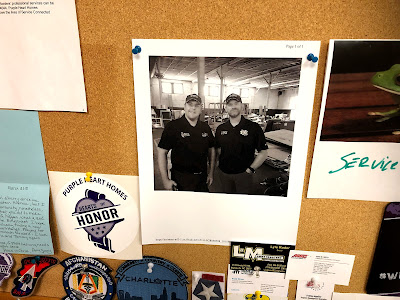The following is an article from my friend Sam Thomas who lives and works in India bringing the Gospel to millions. Not only that the ministry of Hopegivers International houses and feeds thousands of orphans. I've been there twice and long to go again. Sam and his father M.A. are both powerful testimonies to the love of Jesus Christ put into practice. You can check out all they are doing at their website by clicking here:
www.hopegivers.com
I hope you enjoy this article and let me know what you think. But more than that, pray for Sam and M.A. Pray for India and South Asia. Pray for this world.
Hope as Process
It is one thing to be a possessor of hope-even a scholar of hope-but it is an even greater thing to become an active giver of hope.
The first thing you learn is that giving hope is not a one-time event. It is a process that goes on, sometimes for years. Hopegiving is a wheel that moves forward as a progressive process. You learn them from loving and caring for abandoned and orphaned children.
I have just returned from an exciting mission to Africa where we are starting two new Hope Homes for starving orphans. As we walked through the crowds of orphans there-I was painfully aware that hope had gone from their eyes.
Oh, they were wonderfully grateful for the food and medicines we brought, but this one-time gift could not bring the rays of hope back in their eyes. I wanted to tell them that we won't forget them-that they could trust us to come back. However, no words can convey that. We can only prove our compassion through ongoing actions, by the process of hope.
The Wheel of Hope
It is the same with the abused children we rescue from the streets of India. They cannot have real hope until they see the Wheel of Hope moving forward. All seven spokes on the Wheel of Hope must be strong and intact for hope to be fully born in an abandoned, forsaken child. Hope starts with help for today and ends in eternity. To get there, we must meet many needs along the way:
No child goes hungry
No child remains sick
No child goes homeless
No child lives in danger
No child goes unschooled
No child goes unloved
No child suffers violence
For this seven-spoked wheel to move forward, three things have to happen:
FIRST, our hope giving has to be regular. Those who make the Hopegivers pledge to give a regular monthly gift understand this important truth. The backbone of our work is not million dollar grants (although we need them!) What really keeps the children alive are people that give $1 a day, $30 a month to support the staff, students or general fund.
SECOND, our hope giving has to be holistic. It does not end with providing basic physical necessities - that's only the start. It must progress by meeting emotional, social, and spiritual needs. We believe every child, regardless of religion, caste or race, deserves more than just food, a roof and a sleeping mat. Children also need education, haircuts, decent clothes, and loving family-style relationships.
THIRD, our hope giving has to be balanced. It has to include moral and spiritual education. We cannot choose a child's spiritual destiny but we can point her in the right direction. We cannot give them faith-but we must demonstrate it by providing a foundation to help them make the best choice. Using our God-given free moral agency, each of us has to make the ultimate moral and spiritual choices on our own.
True hope springs from ongoing relationships. That "hope process" begins with your support for a child or a staff worker. Without positive relationships between the staff workers and the children, hope doesn't happen. Without trained "Apostles of Hope" who will go start the work, hope doesn't happen. Our task as Hopegivers is to nurture and support this ongoing, progressive process of hope.
Yours for the children of the world,
Dr. Samuel Thomas
www.hopegivers.com
I hope you enjoy this article and let me know what you think. But more than that, pray for Sam and M.A. Pray for India and South Asia. Pray for this world.
Hope as Process
It is one thing to be a possessor of hope-even a scholar of hope-but it is an even greater thing to become an active giver of hope.
The first thing you learn is that giving hope is not a one-time event. It is a process that goes on, sometimes for years. Hopegiving is a wheel that moves forward as a progressive process. You learn them from loving and caring for abandoned and orphaned children.
I have just returned from an exciting mission to Africa where we are starting two new Hope Homes for starving orphans. As we walked through the crowds of orphans there-I was painfully aware that hope had gone from their eyes.
Oh, they were wonderfully grateful for the food and medicines we brought, but this one-time gift could not bring the rays of hope back in their eyes. I wanted to tell them that we won't forget them-that they could trust us to come back. However, no words can convey that. We can only prove our compassion through ongoing actions, by the process of hope.
The Wheel of Hope
It is the same with the abused children we rescue from the streets of India. They cannot have real hope until they see the Wheel of Hope moving forward. All seven spokes on the Wheel of Hope must be strong and intact for hope to be fully born in an abandoned, forsaken child. Hope starts with help for today and ends in eternity. To get there, we must meet many needs along the way:
No child goes hungry
No child remains sick
No child goes homeless
No child lives in danger
No child goes unschooled
No child goes unloved
No child suffers violence
For this seven-spoked wheel to move forward, three things have to happen:
FIRST, our hope giving has to be regular. Those who make the Hopegivers pledge to give a regular monthly gift understand this important truth. The backbone of our work is not million dollar grants (although we need them!) What really keeps the children alive are people that give $1 a day, $30 a month to support the staff, students or general fund.
SECOND, our hope giving has to be holistic. It does not end with providing basic physical necessities - that's only the start. It must progress by meeting emotional, social, and spiritual needs. We believe every child, regardless of religion, caste or race, deserves more than just food, a roof and a sleeping mat. Children also need education, haircuts, decent clothes, and loving family-style relationships.
THIRD, our hope giving has to be balanced. It has to include moral and spiritual education. We cannot choose a child's spiritual destiny but we can point her in the right direction. We cannot give them faith-but we must demonstrate it by providing a foundation to help them make the best choice. Using our God-given free moral agency, each of us has to make the ultimate moral and spiritual choices on our own.
True hope springs from ongoing relationships. That "hope process" begins with your support for a child or a staff worker. Without positive relationships between the staff workers and the children, hope doesn't happen. Without trained "Apostles of Hope" who will go start the work, hope doesn't happen. Our task as Hopegivers is to nurture and support this ongoing, progressive process of hope.
Yours for the children of the world,
Dr. Samuel Thomas



Comments